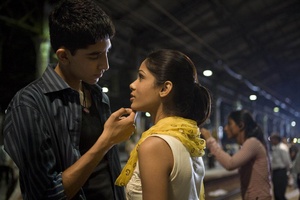Since early October, the Israel-Hamas war has had the attention of the world.
The war is between Israel and the Islamic militant group, Hamas. Along with the bombardment in Gaza, violence has been on the rise in the West Bank, and tensions are high on the Lebanese border.
Background
The Israeli-Palestinian conflict has been going on for decades. The conflict originates from a dispute over the territory that is considered the Holy Land by Jews, Muslims and Christians. The region has been a place of conflict throughout history.
Two major conflicts in the region took place in 1948 and 1967. The war in 1948 occurred after Israel was declared an independent state, and Jews immigrated to the region seeking refuge after the Holocaust.
Hamas is an Islamic militant movement that governs over 2 million Palestinians in the Gaza Strip. The group was formed after an uprising against the Israeli occupation of Gaza, the West Bank and East Jerusalem in 1987. The group has held authority in Gaza since 2005 when Israel withdrew from the territory.
Key events and human impact
Israel declared war on Hamas Oct. 8 following a surprise attack by Hamas on Israel Oct. 7. The attack by Hamas was a combination of gunmen who breached security barriers that separated Gaza and Israel and a rocket attack fired from Gaza. The initial attack led to hundreds of casualties and injuries, and the exact number of captives is unknown.
Israel quickly retaliated to the attack. Since they declared war, Israel ordered a siege of Gaza, and air raids by Israel on the Gaza Strip have continued.
The head of the United Nations Relief and Works Agency for Palestine refugees noted that over three weeks, nearly 3,200 children were killed in the attacks on Gaza, and 70% of the reported casualties were women and children.
The UN General Assembly passed a non-binding resolution Oct. 27. The resolution calls for an “immediate, durable and sustained humanitarian truce leading to a cessation of hostilities.”
On a local scale, attempts were made to interview a couple of individuals who have been impacted because of religious or personal ties to the events happening. However, due to concern for their own safety and the sensitivity of the issue, they were unable to comment.
Why we should stay informed
The war happening in Israel is on the other side of the globe. However, it is an event that is affecting the world on a grand scale. The United States considers Israel an ally and provides military support for it. Because of this, the U.S. could be pulled into the conflict. This would affect taxpayers and anyone subject to a draft.
Geoff Allen, assistant professor of political science, said: “One of the things that students should care about is that global conflict is not generally a good thing. If the Middle East falls into a wide-scale conflict, the United States, because of its unique position in the world, is going to get drawn into that conflict. There will be no avoiding it.”
Allen also said from an economic standpoint, even if it does not lead to a war, the U.S. may be affected economically through restrictions on oil trade leading to higher gas prices and larger negative effects on international economics.
Rather than viewing the issue as a simply two-sided polarized conflict, the situation’s complexity calls for a more critical approach. There have been acts committed by both Israel and Hamas that have led to criticism.
Vince Brown, instructor of the practice in political science, said social media can force someone to take a side by showing content that will make a person feel angry and divided. He said a complex issue such as this sometimes leads to a person needing to hold two opposing thoughts in their mind at the same time.
Brown said: “Why should university students care? Because you’re becoming educated people, and educated people shouldn’t fall for that. They shouldn’t fall for the idea that you have to choose one side or the other and that sort of simplistic thinking.”
There is a humanitarian crisis happening in this conflict and the potential for a future war. A humanitarian crisis such as this should matter to everyone because we are all a part of the human race.
“This is about as important as it gets,” Brown said.



